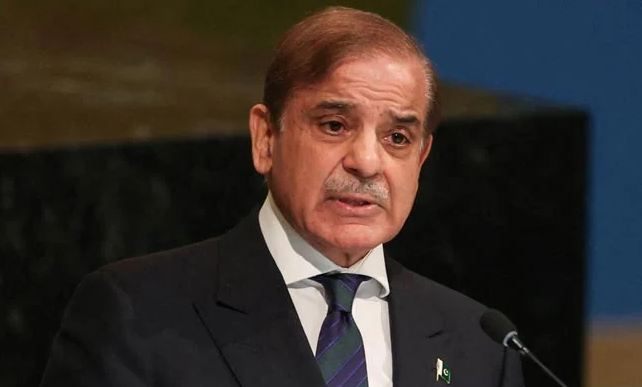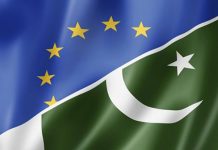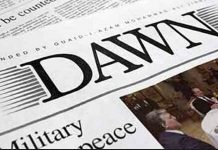LAHORE, JUN 17 /DNA/ – Pakistan’s $11 billion value-added export-oriented industry—contributing nearly one-third of the country’s total exports—has issued a strong SOS appeal to Prime Minister Shehbaz Sharif, warning that recent budgetary measures are set to derail the export-oriented sectors at a critical time.
In a joint statement, Pakistan Readymade Garments Manufacturers and Exporters Association (PRGMEA), in collaboration with the top export-oriented associations including PHMA, SIMAP, PSGMEA, PGMEA, PLGMEA, PCSUMEA and Sialkot Chamber of Commerce, demanded the immediate revival of the Final Tax Regime (FTR) and restoration of the Export Facilitation Scheme (EFS) to its original structure.
The appeal was endorsed by industry stalwarts including PRGMEA Chairman Dr. Muhammad Ayyaz Uddin and former Central Chairman Sohail A. Sheikh, Sialkot Chamber of Commerce and Industry (SCCI) President Ikram ul Haq, PSGMEA Chairman Khawaja Masud Akhtar—whose company’s footballs are used in FIFA World Cup tournaments — SIMAP Chairman Zeeshan Tariq, PLGMEA Chairman Syed Ahtisham Mazhar, PHMA Chairman Abdul Hameed and former chairman Khawaja Mushraf, PGMEA Chairman Annas Raheel Barlas, PCSUMEA Chairman Muhammad Jamal Bhutta, Majid Bhutta, Ansar Aziz Puri, Sheikh Luqman Amin and other prominent exporters and business leaders.
They expressed deep concern that despite government slogan of “export-led growth,” the reality on the ground is entirely opposite. The Government always talks about promoting exports, but in practice, no department seems to be on board.
They pointed out that in the entire budget speech, the finance minister uttered the word “export” only once — and that too in a negative context while imposing duties on imported yarn under EFS.
Addressing the Prime Minister directly, the joint statement said: “Honourable Prime Minister, we urge you to intervene immediately. Please convene an emergent meeting with the leading export associations and the Sialkot Chamber before this budget is passed. If this situation persists, Pakistan’s most reliable foreign exchange earning sector will suffer irreparable damage.” They stressed that in such a policy environment, the government’s vision “URAAN PAKISTAN” of taking exports to $100 billion is simply not possible.
The industry leaders were clear: “We’re not asking subsidies, exemptions, or special treatment—just a level playing field to compete globally. Unfortunately, the current policies have drastically raised the cost of doing business and severely impacted ease of doing business.
Work must begin on a war footing to restore confidence and streamline processes. International buyers are actively seeking long-term clarity and stability in the EFS framework, as Pakistan stands at a strategic moment to attract business being diverted from China. This opportunity must not be missed.
They said the abolition of FTR and the breakdown of EFS have created chaos in the industry. The Final Tax Regime, which once offered a simple and predictable tax mechanism, has now been replaced by complex procedures, audits, and refund hurdles, particularly hurting small and medium (SMEs) exporters.
Meanwhile, the EFS—once a vital mechanism for importing essential raw materials not produced locally, or required by buyers to use their nominated suppliers to meet international quality standards, such as specialized materials and technical fabrics — has been bogged down by unnecessary conditions, limiting access to critical inputs and undermining export competitiveness. Business leaders emphasize that it is time for Pakistan to strategically move beyond cotton and adopt a more diversified, innovation-driven approach to value-added apparel exports.
“We don’t have time for delays and paperwork when international buyers are waiting. These policy changes are making us uncompetitive, increasing costs, and pushing us out of global markets,” they said. The result, they warned, will be cancelled export orders, closed factories, and mass unemployment.
The exporters reiterated that restoring the original FTR and EFS mechanisms will not cost the government anything but will directly help grow exports and attract more foreign exchange. This is not just about industry survival—it’s about Pakistan’s economic stability. We stand united and ready to engage, but we need urgent and serious action from the government.
“Pakistan is at a crossroads. With the right policy support, our exporters can help drive growth, jobs, and stability. But the clock is ticking—and the damage is already being felt.”=DNA
==========

















